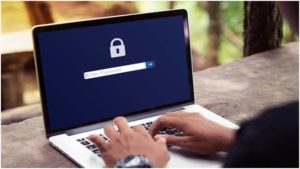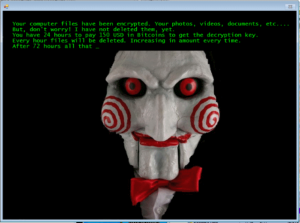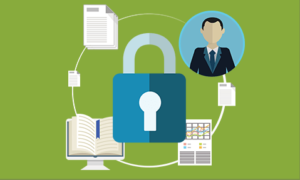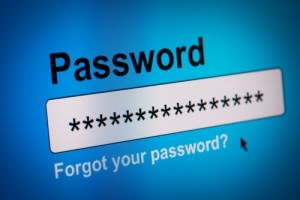The Critical Importance Of Cyber Security For Remote Workers
As technology continues to grow day by day, an increasing number of people are working from home full-time. While remote working brings certain benefits, such as improved work-life balance and greater productivity, it also carries specific risks. For example, data breaches and cyber-attacks are among the most typical threats faced by people working from home.
Inevitably, investing in robust remote work cyber security is essential for the modern workplace, ensuring that workers’ privacy and sensitive company data are not susceptible to unforeseen attacks and theft. It is therefore critical that businesses must protect their employees from phishing, malware, and other cyber threats.
This article efficiently outlines the fundamental aspects of cyber security, its importance, and quick tips to ensure it.
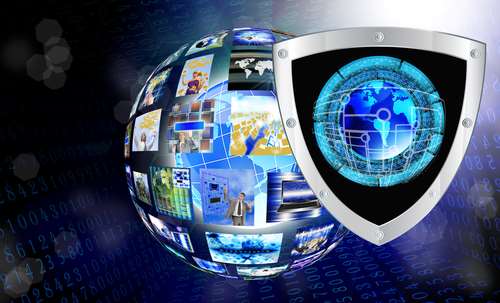
Why it matters
With the latest statistics showing that more and more people are now working from home, it has become even more critical to protect oneself against online crime. That’s because some cybercriminals are adept at hacking into people’s devices and stealing private information such as bank details, financial information, passwords, and more.
However, the aim of high-quality and unfailing cyber protection goes beyond ensuring your data is theft-proof. It means protecting your laptop, mobile phone, and any other electronic device you may be using for work purposes. It is the only effective way to prevent finances, customer details, intellectual property, and other crucial data theft.
If online fraudsters target primary devices that store sensitive data belonging to thousands of people, it could result in mass-scale thefts. Invariably, cyber security has become just as important to private companies as it has always been to government and private sectors.
Top cyber threats remote workers face
Often, delinquents target unsuspecting remote workers using a wide range of attacks, making it challenging to detect the breach. However, companies can mitigate these threats with robust security infrastructure to a vast extent.
The following are some widespread ways cyber security is attacked for the benefit of those who have little idea about these threats.
- Adware and Malware – Malware is extremely harmful software designed to spread across and corrupt your systems. It gets embedded into the device due to unsafe downloaded files and external devices. As the name suggests, adware is rogue advertising software that downloads into your computer and spreads malware.
- Phishing attacks – Hackers and rogue internet users target people with false identities and provoke them into revealing personal information, which they use to steal funds, private data, and more.
- Ransomware – This is an unpleasant scenario where cybercriminals lock your entire system and demand a ransom from you to make it functional again.
- Self-replicating viruses – These are corrupt software that attach themselves to any file you wish to download and then spread throughout your system. Getting rid of these viruses can be pretty challenging as they keep replicating themselves.
Tips to ensure security
Several people venturing into the work-from-home scenario for the first time may find themselves confused about cyber security details and how to go about it.
While it is highly recommended that you hire an expert to get you started on the best track, there are many vital things to know beforehand. These basic details can help you understand what to expect from a solid security protocol in place. Use the following information to get started.
-
Avoid unsecured internet connections
It is a must to secure your wireless internet connection as the very first step toward cyber security management. Use a complex password that does not feature personal details, such as your name, address, or date of birth. This complexity will make it difficult for hackers to guess the password.
-
Ensure the software is updated regularly
Practically everyone knows the importance of high-quality antivirus software, but updating your software regularly is equally pivotal. It will prevent malware from creeping into the devices and corrupting everything on it.
-
Centralised storage is key
Using a centralised storage system, such as the cloud, is always better to ensure all employees backup critical company data. So, if the local files are breached, you still have a secure offline copy in the central storage. In contrast, storing files on local computers complicates things and makes the information vulnerable to attacks.
-
Invest in webcam covers
Cybercriminals illegally entering private company video conferences is a relatively new threat that needs to be dealt with effectively. However, webcam spying has been around for a long time, with hackers targeting unsuspecting victims and stealing sensitive information from them. Investing in sliding covers for your attached webcam can help prevent such thefts from occurring.
-
Consider using a VPN browser
Companies must ensure VPN access is encrypted, making it safe for employees to use and difficult for hackers to get into. Moreover, the passwords must be strong enough to resist any outside and unauthorized login attempts.
-
Use strong passwords and minimise data transfers
It is unwise to use a single password or even variations of the same one for different accounts, as it makes it easy for cybercriminals to hack through them. So, create complicated passwords for various online accounts and change them periodically to prevent attacks. Also, minimise transferring official data to personal devices as this makes the entire setup easier to hack.
-
Monitor data
Investing in sophisticated data monitoring systems is a splendid idea as it can alert employees to sudden security breaches and theft attempts. It can help companies fix existing leaks and deal with suspicious activities sternly.
-
Have a contingency plan
What should an employee do in the event of a security breach? Should the official authorities be contacted immediately? Will the business management handle the situation well? These are critical questions to remember when creating a contingency plan in case of cyber-attacks, and they will help employees and the management deal with the crisis effectively.
Summary
It is critical to hire an expert with loads of experience in internet security to ensure the very best remote work cyber security for your business. These are thorough professionals who deal with cyber threats every day, know which areas are most vulnerable, and put up solid security measures. Also, they can help with device encryption, device management, and other pivotal aspects to make your work environment safe.
Therefore, look for a company with incredible experience in cyber security, excellent customer feedback, reasonable rates, and a range of IT services for businesses of all sizes.

